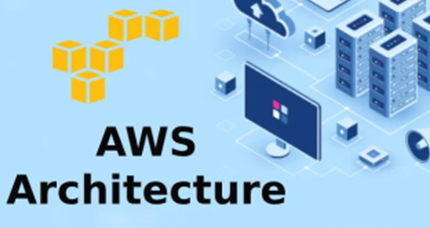AWS Infrastructure
- satyanarayan behera
- Jul 19, 2022
- 2 min read
AWS Region
Selecting the AWS region :
Compliance
Customer reference
Features available according to the region
Pricing

Availability Zone
An Availability Zone is a single data center or a group of data centers within a Region. Availability Zones are located tens of miles apart from each other. This is close enough to have low latency (the time between when content requested and received) between Availability Zones. However, if a disaster occurs in one part of the Region, they are distant enough to reduce the chance that multiple Availability Zones are affected.
Edge locations
An edge location is a site that Amazon CloudFront uses to store cached copies of your content closer to your customers for faster delivery.
CDNs
Caching copies of data closer to the customers all around the world uses the concept of content delivery networks, or CDNs.
Amazon CloudFront
CDNs are commonly used, and on AWS, we call our CDN Amazon CloudFront. Amazon CloudFront is a service that helps deliver data, video, applications, and APIs to customers around the world with low latency and high transfer speeds. Amazon CloudFront uses what are called Edge locations, all around the world, to help accelerate communication with users, no matter where they are.
AWS Outpost
AWS Outposts, where AWS will basically install a fully operational mini Region, right inside your own data center. That's owned and operated by AWS, using 100% of AWS functionality, but isolated within your own building
AWS Outposts is a service that enables you to run infrastructure in a hybrid cloud approach.
Amazon CloudFront is a content delivery service. It uses a network of edge locations to cache content and deliver content to customers all over the world. When content is cached, it is stored locally as a copy. This content might be video files, photos, webpages, and so on.
Ways to interact with AWS services
1. AWS management console- Website based interface
Easy to start , test
Work in navigation
To perform a same task , to do repeated steps
2. AWS command line interface - AWS CLI
If same kind of task to do repeatedly, we can use same Script to run
We can use scheduler to run the scripts
AWS CLI is available for users on Windows, macOS, and Linux.
3. AWS SDks - Software development kits
We can write scripts , create APIs depends on our platform/language
To help you get started with using SDKs, AWS provides documentation and sample code for each supported programming language. Supported programming languages include C++, Java, .NET, and more.
4. AWS elastic Beanstalk:
We need to provide our script / Programing, AWS Elastic Beanstalk will create the framework with resources. It also saves the template , so the same framework can be created.
It’ll take care -
Auto scaling
Load balancing
Adjust capacity
Application health monitering
5. AWS Cloudformation
It’s more advanced then AWS Elastic beanstalk.
AWS CloudFormation is an infrastructure as code tool that allows you to define a wide variety of AWS resources in a declarative way using JSON or YAML text-based documents called CloudFormation templates.
We can code to create the infrastructure, AWS cloudformation will create the framework, save template, taken care the all features like scaling, balancing, security etc etc.
Template can be copied to various AWS regions.
It can be integrated with other APIs
CloudFormation supports many different AWS resources from storage, databases, analytics, machine learning, and more



Comments